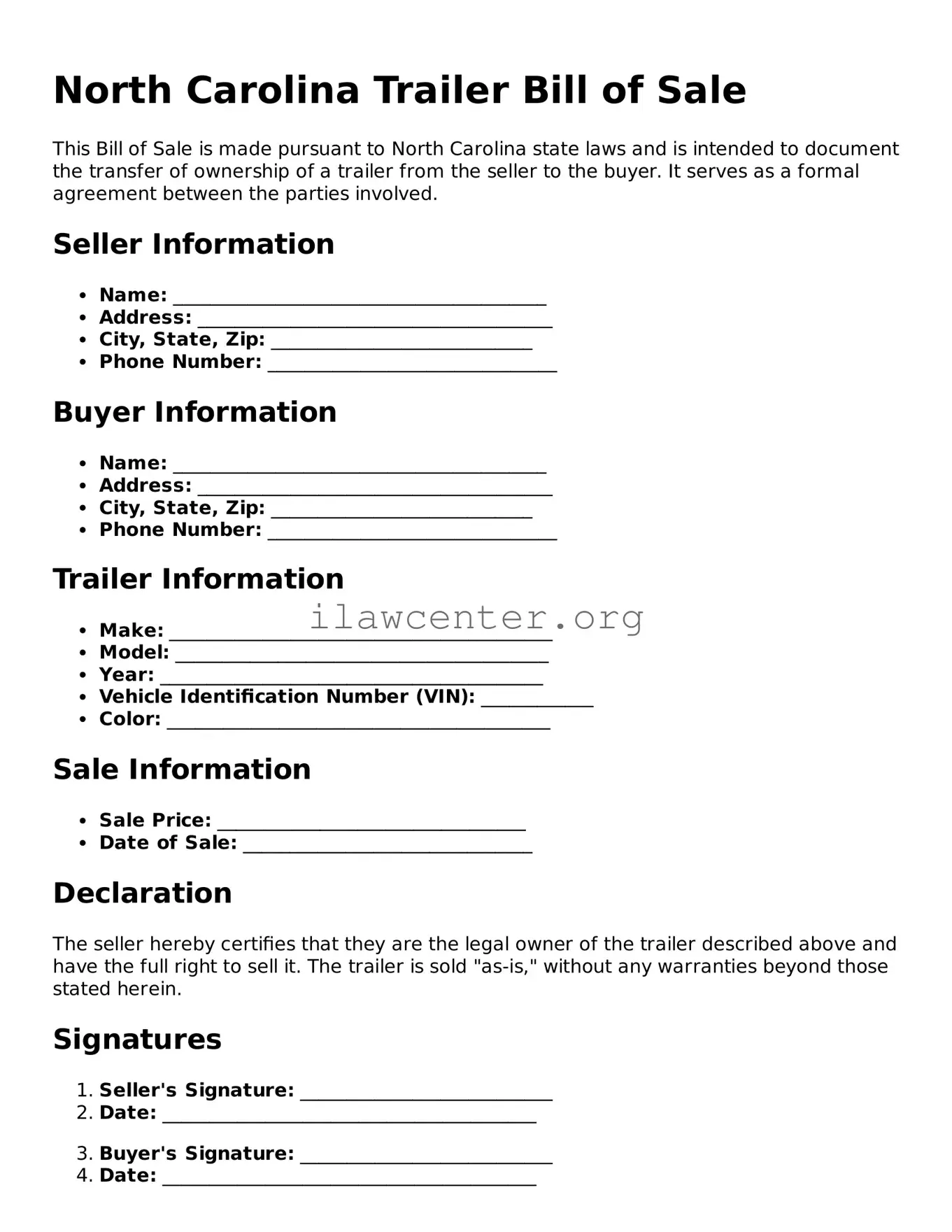Instructions on Utilizing North Carolina Trailer Bill of Sale
Completing the North Carolina Trailer Bill of Sale is an important step in the process of transferring ownership of a trailer. Once the form is accurately filled out, it can be presented at the DMV for registration purposes.
- Begin by obtaining the North Carolina Trailer Bill of Sale form. This can be found online or at local DMV offices.
- Write the date of the sale at the top of the form.
- In the designated area, provide the name and address of the seller. Make sure the details are complete and accurate.
- Next, enter the buyer’s name and address in the appropriate sections under the seller's information.
- Clearly describe the trailer being sold. Include the make, model, year, Vehicle Identification Number (VIN), and any other relevant details.
- Specify the sale price. Both the seller and buyer should agree on this amount.
- Both parties must sign and date the form to validate the sale. Ensure that the signatures are legible.
- If there are any additional terms or conditions related to the sale, they should be noted in the provided section.
After completing these steps, both the seller and buyer should retain a copy for their records. This documentation will assist in the transition of ownership and any future related transactions.
